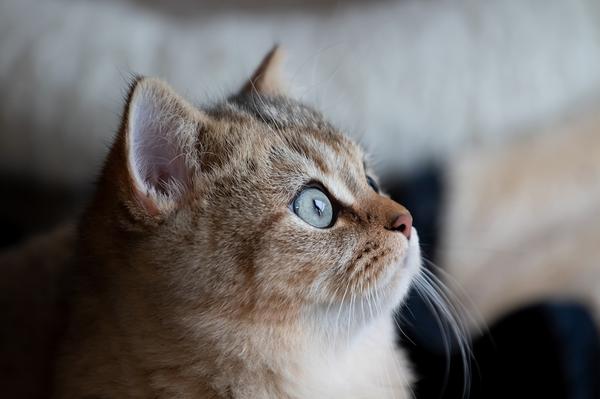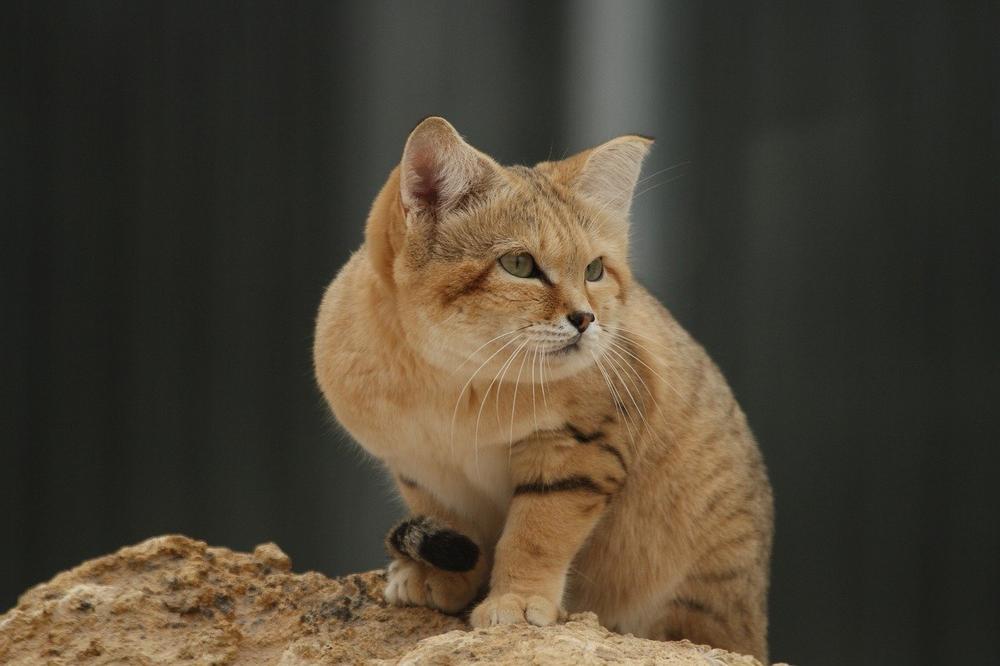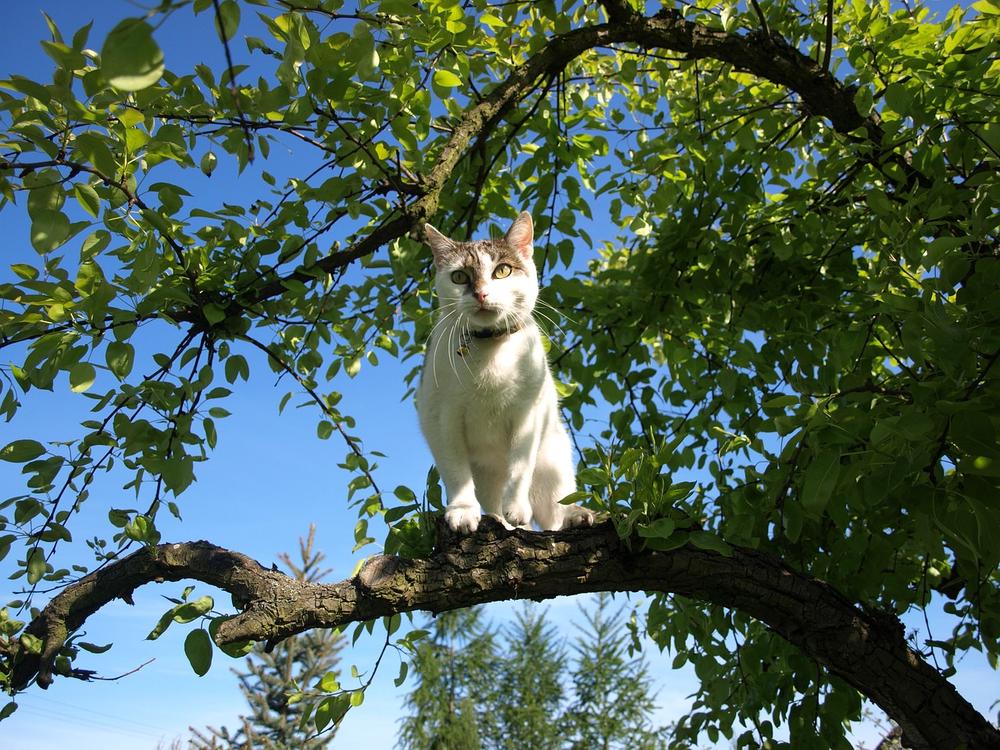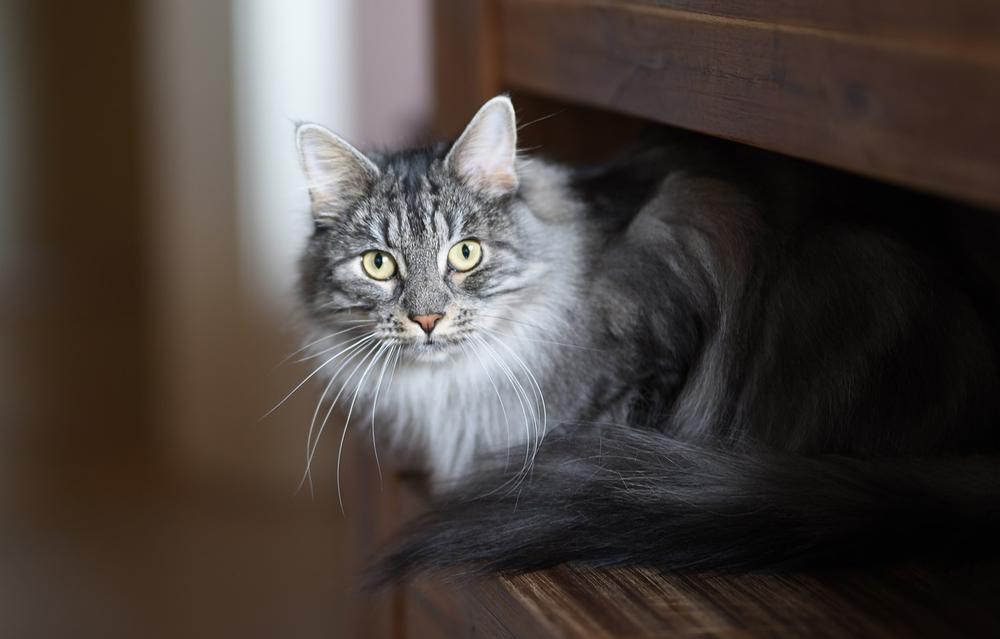How to Stop a Cat From Spraying (Pro Tips That Actually Work)

Fellow clean freak...
Are you determined to maintain a spotless sanctuary but have a furry problem that's driving you up the wall? 😺
We've all been there, feeling like a cat detective in our own homes, searching for clues to stop that spraying culprit.
But fear not...
Today's guide is your surefire solution to keep that pesky problem at bay.
Trust me, you don't want to miss out on these tips, or else your home may become a smelly war zone.
Let's dive in and save your nose from a world of pain!
Understanding the Reasons Behind Cat Spraying
Cat spraying is a form of communication triggered by stress, conflicts, changes in environment, intact status, health issues, anxiety, and territorial marking. It involves small amounts of urine on vertical surfaces, while urination fully empties the bladder. Identifying the reasons is crucial for finding a solution.
Living with a cat that sprays in your house can be incredibly frustrating.
However, you should comprehend the reasons for this behavior if you want to discover effective solutions.
Fun fact: did you know that spraying is actually a form of communication for cats?
That's right, your furry companion is just trying to send a message!
When cats undergo heightened stress levels, such as changes in routine or the introduction of new family members or pets, they might resort to spraying.
In reality, approximately 10% of all cats will eliminate outside of their litter box at some point in their lives.
But why do they spray instead of using their litter box like regular cats?
Well, spraying serves as a means for cats to indirectly communicate with other felines. It's how they assert their presence, mark their territory, and even signal their availability for mating.

Talk about a versatile behavior!
Spraying can be triggered by various factors.
Stress is a significant contributor, but conflicts between cats, environmental changes, intact status, health problems, anxiety, and territorial marking also have roles to play.
To identify spraying behavior, you should pay attention to specific characteristics.
Spraying usually involves small amounts of urine being deposited on vertical surfaces like walls or furniture legs.
On the contrary, urination typically entails fully emptying the bladder.
Managing cat spraying often requires a combination of strategies. Starting with a medical evaluation to rule out any underlying health issues that may be causing this behavior is essential.
Understanding the reasons behind your cat's spraying is the initial step towards finding a resolution.
Stay tuned for more valuable tips on how to put an end to this issue without losing your mind!
Main points I'll expand upon further down this article:
- Cats have scent glands on their paws, cheeks, and flanks for marking territory.
- Training and spaying/neutering can prevent spraying behavior.
- Thorough cleaning with washing powders or enzymatic neutralizers is necessary for sprayed areas.
- Neutering cats at an early age is a proactive measure.
- Castration or neutering generally reduces spraying motivation.
- Avoid punishment and focus on positive reinforcement and environmental enrichment.
- Avoid using ammonia or bleaching agents for cleaning.
- Improve litter box hygiene by cleaning daily and changing litter weekly.
- Provide multiple clean litter boxes with high sides and address conflicts with outdoor cats.
- Consider using pheromones, scratching posts, and synthetic cheek gland scents, like Feliway®, to deter spraying behavior.
Preventing Cat Spraying Behavior Effectively
You want to keep your cat from spraying?
Here's what you can do:
- Make sure your cat has vertical spaces. They need to mark their territory, so get tall scratching posts or cat trees.
- Train and spay/neuter your cat. This helps redirect their instincts and reduces their motivation to spray.
- Clean sprayed areas thoroughly. Use washing powders or enzymatic neutralizers to remove the scent and prevent them from re-marking.
- Catch it early. It's easier to stop spraying before it becomes a habit. Look out for signs and give them alternative marking options like scratching posts.
- Consider neutering even if it's not a guarantee. Most cats stop spraying after being neutered, but some could still continue. If you're not planning on breeding, it's best to go ahead with neutering.
Creating a serene atmosphere can be achieved by applying these guidelines, which will effectively prevent your cat from spraying. 😺

And it gets worse.
Your cat may still spray even after implementing the previous preventive measures.
In the next section, we will delve into identifying and addressing potential triggers for spraying, providing you with effective strategies to ensure a urine-free home.
Don't miss out on these valuable insights!
Managing and Stopping Your Cat From Spraying
Identifying and addressing potential triggers for spraying is crucial in preventing its recurrence.
Conflicts with neighborhood cats and outdoor stimuli can often trigger spraying behavior in cats.
When managing this behavior, you ought to avoid punishing or scolding your cat.
Instead, focusing on positive reinforcement and environmental enrichment can be more effective in stopping spraying.
It is also advisable not to use ammonia or bleaching agents when cleaning.

These chemicals can actually worsen urine marks and encourage further spraying. To help reduce spraying, improve litter box hygiene by cleaning it daily and changing the litter weekly.
By following these steps, you can address and manage spraying behavior in your cat effectively.
To effectively manage and stop spraying behavior in your cat, it's crucial to identify triggers and address them appropriately.
Instead of punishing or scolding your furry friend, I advise focusing on positive reinforcement and environmental enrichment.
Additionally, when cleaning, it's recommended not to use ammonia or bleaching agents as these can worsen urine marks and encourage further spraying.
To help reduce spraying, I suggest improving litter box hygiene by cleaning it daily and changing the litter weekly.
However, if you're facing the frustrating issue of your cat hiding behind the TV, I highly recommend checking out Cat Hiding Behind Tv for valuable solutions.
Creating an Ideal Environment to Discourage Cat Spraying
To stop your cat from spraying, here's what you can do:
- Give each cat their own space with separate litter boxes, food/water stations, and resting areas.
- Have multiple clean litter boxes with high sides for privacy.
- Deal with conflicts by blocking the view or redirecting marking behavior outside.
- Show your cat extra attention and stick to a consistent routine to avoid triggering spraying.
- Try different types of litter to find what your cat likes best.
- Consider using pheromone products like Feliway to reduce stress and prevent spraying.
- Provide scratching posts and catnip to satisfy their natural instincts.
- Use special high-sided or modified litter boxes designed for spraying. You can also create marked areas with shower curtains or tiling.
- Close blinds to avoid territorial behavior sparked by outdoor sights.
- Use outdoor deterrents to keep other cats away from your property.
- Avoid placing your cat near doors or windows that might tempt them to spray.
- Keep windows closed so your cat doesn't smell other cats' markings.
- Use odor neutralizers made for cat urine to eliminate scents that could encourage spraying again.
Prevent spraying in your home by implementing these suggestions and establishing a cat-friendly atmosphere.

Attention: If you've been struggling with your cat running out of the litter box while pooping, you should definitely check out Cat Runs Out of the Litter Box While Pooping. I completely understand how frustrating and concerning it can be, but I've got some valuable insights that can help you understand why this is happening. Trust me, it's worth a read!
And now, let's delve deeper into some positive reinforcement strategies and techniques that can help discourage spraying in cats...
Implementing Behavior Modification Techniques to Stop Cat Spraying
Encouraging positive associations with the litter box
You know, cats are really smart.
They respond best to positive reinforcement.
So if you want your cat to stop spraying and start using the litter box, you must ensure they have a good experience with it.
One way to do that is by giving them treats or praising them every time they use the box correctly.
This will help them understand that using the litter box is a good thing.
And who doesn't like getting a treat now and then, right?
But wait!
Before you go all "cat whisperer" on your furry friend, there's something you should please bear in mind:
Shouting at or spanking your cat actually makes things worse. It's better to be patient and use positive reinforcement to train them.
Playtime and attention are key
Now let's talk about street cats.
These little guys might need some extra motivation to use a litter box.
So besides giving them treats, try giving them even more positive reinforcement.
Spend some quality playtime with them using fun toys like feathers or laser pointers.
Trust me, they'll appreciate the extra attention.
And speaking of attention, you need to address any stress factors in your home that might be causing your cat to spray.
Whether it's changes in the environment or issues in your relationships, these things can really stress out our furry friends.
So take some time to identify and fix those stressors, and you might just see an improvement in your cat's behavior.
Feliway®: The secret weapon against urine marking
Here's the thing.
There's this awesome product called Feliway® that works wonders in reducing urine marking. It's a synthetic scent that mimics the cheek gland of cats, creating a calming environment for your cat.
All you have to do is plug it into an outlet and let the magic happen.
So if your cat is spraying all over the place, using behavior modification techniques can make a big difference.
Just stay positive, be patient, and tackle any underlying issues.
You've got this!
Seeking Professional Help for Cat Spraying Issues
If you've tried everything to stop your cat from spraying and nothing's working, it might be time to get some professional help.
Here are a few options to consider:
- Try holistic remedies: You can explore things like acupuncture or herbal treatments to help calm your stressed-out kitty. These methods focus on getting to the root of the problem rather than just hiding the symptoms.
- Get a vet involved: It's a good idea to take your cat for a thorough checkup at the vet. This will help rule out any medical causes for the spraying behavior, and they can perform tests to figure out if there are any health issues at play.
- Consider medication: If holistic approaches aren't doing the trick, you might want to think about trying medication. There are anti-anxiety drugs like buspirone and benzodiazepines that could work, but consider factors like dosage, cost, and potential side effects. Antidepressants such as clomipramine and fluoxetine have also been shown to help control spraying in cats.
- Talk to a behavioral expert: Behavioral therapy can really make a difference when it comes to spraying problems. Seek guidance from a professional who specializes in cat behavior or training, especially in dealing with elimination issues.
Getting professional help can give you valuable advice and support in dealing with your cat's spraying troubles. It'll lead to a happier and healthier life for both you and your furry friend.
And that wraps up today's article.
If you wish to read more of my useful articles, I recommend you check out some of these: Why Isnt My Cat Affectionate, Why Does My Cat Hold My Hand, Can a Cat Ride in a Car Without a Carrier, Why Do Cats Watch You Poop or Pee, and Why Does My Cat Sit in the Bathtub
Talk soon,
-Sarah Davis